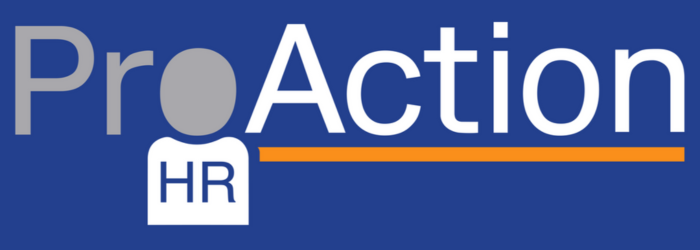Is now the time to finally work smarter, not harder?
’Work smarter, not harder’ is a well coined phrase and the term was first used by Allen F. Morgenstern, an industrial engineer, who created a work simplification program to increase productivity using less effort.
Whether in work or life, most of us strive to accomplish more in less time. Through improving management skills we can accomplish more, whether its through effectively delegating, managing our time or developing our team to name but a few.
Last year ProAction HR launched our Management Development Programme (MDP) and one of our coaches, Joanne Hobbins, summarises: “One thing that struck me was how busy the individuals were at work. These are individuals who don’t normally give themselves the gift of time to stop and process. Time seems such a luxury these days. No matter what we do, whether work or pleasure, there is a common theme of “I don’t have enough time”.
Just attending training can be a challenge to find the time. It’s an investment that will pay you back. Training done right, can mean you come away with goals on how you will improve your own way of working, and ultimately get more from your time and your team.
“I thoroughly enjoyed the course, at first, I was filled with dread on spending an entire day away from my day-to-day work but within minutes I was engaged and excited for more. Each subject we covered was informative and examples were used to really put into perspective the methods explained. What I enjoyed the most was the culture of being able to speak up at any time and share personal experiences/scenarios and discussing them with the group. I would extremely recommend this ProAction HR course to both entry-level managers and established, experienced managers.”
How can you create more time in your day?
We don’t have the luxury of a pause button (if only) so part of our MDP explores the Time Management Quadrant, defined by American educator, author, businessman, and keynote speaker, Stephen Covey. This can help us focus on what is important over what is urgent.
Consider if you were to write down everything that you are due to deliver tomorrow and put it in a matrix, listing what is important/not important and what is urgent/not urgent. Just the act of doing this makes your priorities and where you need to spend your time so much clearer.
You do not have a choice but to react to the urgent and important list but if you spend too much of your time on these, it won’t be long before you reach burn out. Spend too much time on the non-important list, and you need to ask yourself what you are avoiding and also consider if you are delivering on your objectives.
There are many time management models, hints, tips, strategies, Ted talks, podcasts, and approaches to help you manage your time. The biggest gift and a good place to start is to give yourself to just be more aware of how you spend your time.
Are you spending time on what you choose to, or are you reacting to all of the demands placed on you, without thought?
On the flip side you may be consistently mindful of what you spend your time on, and making choices in how you spend your day?
Admittedly, we do not always have the power to make all the decisions. Working with managers on priorities, being clear on your objectives, understanding your fit in the overall deliverables required by you, your team, your manager, and the overall organisation will help steer your decisions. As will being clear on what you yourself want to achieve from work, and indeed personally.
One huge time drain that is prevalent everywhere is ineffective meetings. And as with any prevalent problem there are many solutions to address the issue. One of the most efficient solutions that we cover in our management development training is ‘the 5Ps for the meeting’. This is a particular favourite of our ProAction HR coaches because it is both easy to implement and has an ability to prevent an ineffective meeting happening at the first place.
Avoid wasting time by using the 5 P’s
The 5Ps are Purpose, Participants, Process, Payoff and Preparation.
Purpose:
Every meeting should have a purpose and it must define more than just a subject line calling for a ‘daily meeting’ (why should the team meet daily?)
Participants:
Listing the participants makes the invitee think about who they are inviting and why they are inviting them. The invitee doesn’t have to list the name in the body of the invite, but nevertheless should make a conscious decision about who really needs to be in the meeting.
Process:
How are you going to run the meeting? What is the agenda and what is the time per agenda item? This is key, because this is where the organiser thinks about the time that they need for the meeting. This helps you avoid setting meetings in 30-minute chunks just because that is the calendar default!
Payoff:
What do you want to accomplish at the end of the meeting. This should be specific so that the meeting participants can be held accountable.
Preparation:
What preparation is need from the participants (helps you to revisit the payoff and right size the participants.)
Tips to gift yourself some time!
Book out an hour or two to process, to stop and think about yourself, how you spend your time, and how much you are consciously deciding between.
Apply the 5P’s to the next meeting you receive – and give yourself the gift of saying no to a meeting that you don’t really need to attend (if it’s’ in your power to do so).
And perhaps what you could also do is gift yourself some training to work smarter not harder as it’s a real mind shift for many.
Management Development
Our Management Development Programme focuses on:
You as a manager
Where you are today
Your management style
How you can be a better leader
Your personality type
Time management
And lastly explores where you want to go on your career journey.
Only once you have looked at yourself, can you improve how to manage your team, using management styles, feedback, coaching, and wellbeing. There is so much you can do to help yourself perform better, and ultimately deliver more – without losing out on any more of your your precious time.


